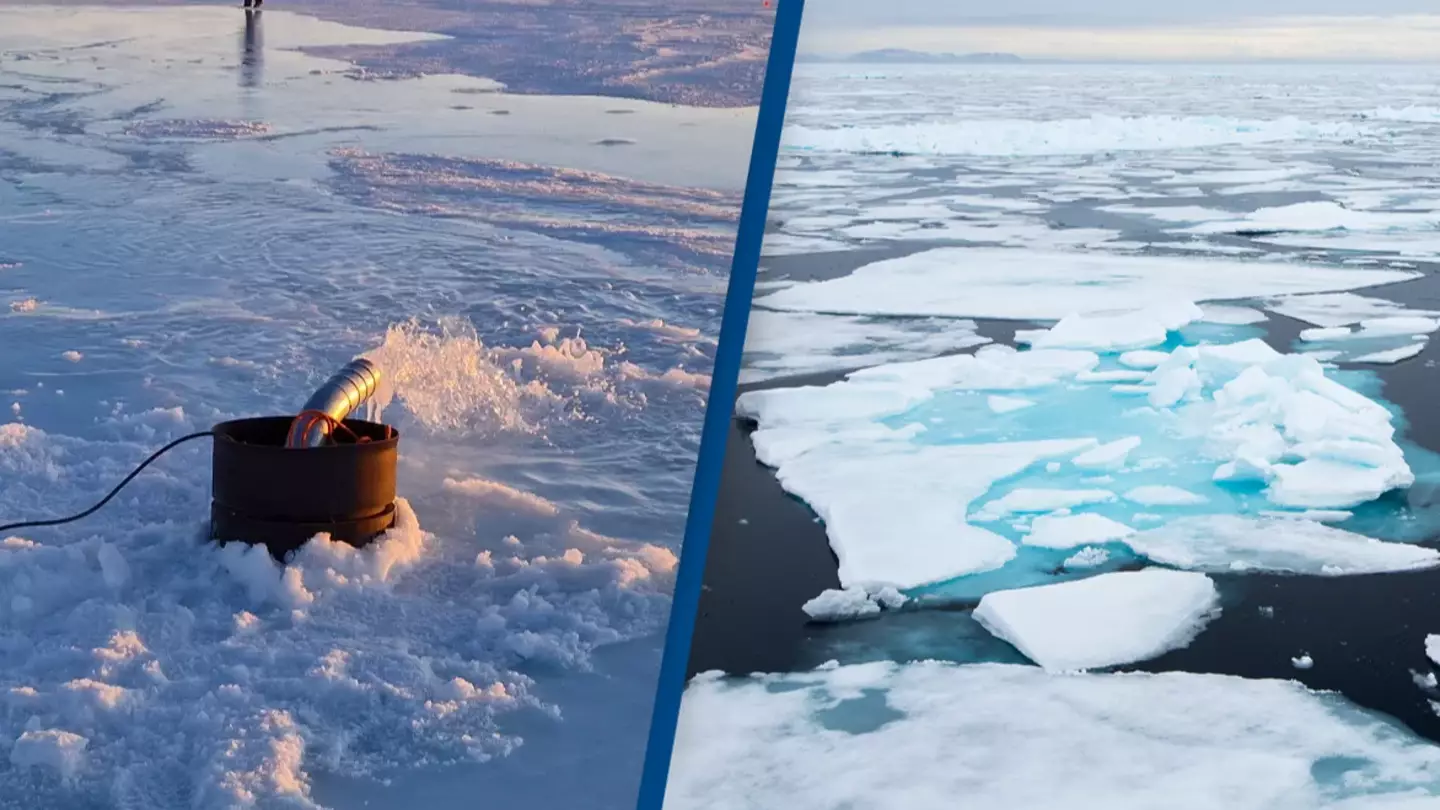The Arctic, one of the most vulnerable regions to climate change, has been warming at an alarming rate. With the ice shrinking by 12.2 percent per decade, scientists have been racing against time to find a solution. A UK start-up, Real Ice, has been testing a revolutionary plan to refreeze the Arctic, but experts are warning of the potential risks and unintended consequences.
The plan involves drilling holes through the sea ice to pump out seawater and freeze it on the surface. The group has been conducting tests in Cambridge Bay, Canada, and initial results show that four inches of ice have been formed so far. While this may seem like a promising start, experts are cautioning that it’s still early days and more experiments and data are needed.
Shaun Fitzgerald, director of the Centre for Climate Repair at the University of Cambridge, expressed optimism about the project but emphasized the need for further research. “I am optimistic, but we need more experiments and more data,” he said.
However, not everyone is convinced that this plan is the right solution. Liz Bagshaw, associate professor in polar environmental change at the University of Bristol, labeled the plan as “extremely questionable” and “morally dubious.” Jennifer Francis, a senior scientist at Woodwell Climate Research Center, also expressed serious doubts about the plan’s effectiveness and potential impact on the marine environment.
One of the major concerns is that the plan could have “grave unforeseen consequences,” including changes to the marine environment and severe environmental damage. A 2024 report warned that intervening in fragile polar ecosystems could cause more harm than good.
Instead, experts argue that the best way to address climate change is through immediate, rapid, and deep decarbonization. This approach would mitigate the cause of climate harm rather than attempting to intervene in complex ecosystems.
As the debate continues, one thing is clear: the Arctic crisis requires urgent attention and action. While the plan to refreeze the Arctic may seem like a promising solution, it’s essential to carefully consider the potential risks and consequences before moving forward.


